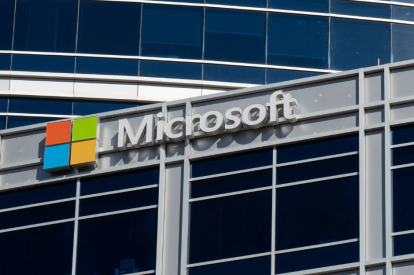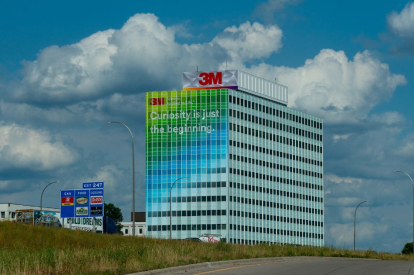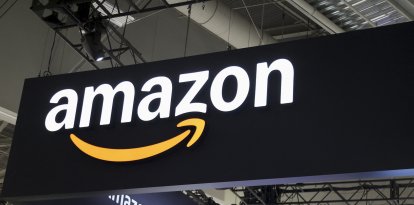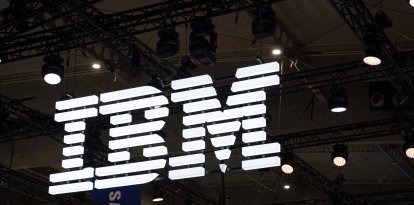Tech 'bug': avalanche of layoffs at major companies
Big Tech, Twitter, Spotify, Dell, HP and 3M are some of the multinationals in the sector immersed in a deep economic crisis.

(Voz Media)
In recent months, several technology companies have carried out a wave of layoffs or announced that they are going to do so. Not only those known as Big Tech (Google, Amazon, Meta -Facebook, Apple and Microsoft), but also other multinationals such as HP, Disney and Spotify. With the start of the new year, the number of technology companies that have undertaken or announced layoffs has skyrocketed.
The arguments used by corporations in the technology sector to lay off a percentage of their workforce varies: from a restructuring of the company to revenue losses or a myriad of cost-cutting plans. Adapting to artificial intelligence is also among one of the most common reasons being used by companies to reduce their workforce of late, and lest we forget the pandemic too.
During the coronavirus, many companies dared to make numerous hires. For example Meta, which increased its headcount by 60% between 2020 and 2021, as reported by Bloomberg. Or Amazon, which doubled its workforce. With the current economic downturn, considered by many to be a recession, many technology companies are being forced to lay off and return to a similar or lower number of employees than before the pandemic.
Big Tech
The five Big Tech companies are going through turbulent times. The only one that had so far managed to avoid massive layoffs is Apple. Its CEO, Tim Cook, said the company had instead opted to be cautious with hiring. However, the Cupertino company is already planning a wave of layoffs at its stores, according to Bloomberg.
Another case is Microsoft. Apple's perennial competitor notified 10,000 of its employees that it woud be laying them off through an email sent to those affected. The company's CEO, Satya Nadella, justified the cuts by stating that: "We are allocating our capital and talent to areas of secular growth and long-term competitiveness for the company, while divesting in other areas."

Microsoft headquarters. File image.
Amazon is the king of e-commerce, beating eBay and Alibaba, its immediate competition, year after year. It retains its dominance in its niche market, but not the workforce it had two months ago. In January, CEO Andy Jassy announced a staff cut of 18,000 employees. The argument he used was the global economic uncertainty we are going through.
The world's most famous web search engine is also in the doldrums. Google announced the layoff of 12,000 workers at the end of January. Sundar Pichai sent a memo to affected employees alleging that they were rushed into hiring two years ago.
Finally, Meta. The Wall Street Journal reported in November about the layoffs to be undertaken by the company founded by Mark Zuckerberg. A cut in its workforce is uncertain, since the number of employees to be made redundant was not disclosed. Mind you, it could be the biggest wave of layoffs at a tech giant.
Social networks
In November 2022, Elon Musk made the decision to begin this came shortly after acquiring the social network for $44 billion; layoffs that he then communicated to those affected via email. This reduction of employees - which began with several of the social network's former executives - was due to a restructuring of the company, as he suggested. Four months later, Musk had already gotten rid of 10% of Twitter's workforce.

Elon Musk enters Twitter headquarters / Twitter capture.
Vimeo was another of those that carried out layoffs, a spokesperson for the video platform confirmed to Business Insider. Four days after 2023 began, Anjali Sud, CEO of the social network, sent an email to employees informing them of the decision. The cutback affected 11% of the workforce, supported by the argument of facing an economic crisis.
Some people don't think of Spotify as a social network, but it is really. The platform uses user data - for example, musical tastes - to generate recommendations. And that kind of interaction is typical of a social network. In January, the Swedish company laid off 600 of its nearly 10,000 employees. "I was too ambitious in investing ahead of our revenue growth. And for this reason, today, we are reducing our employee base by about 6% across the company," said Daniel Ek, co-founder of Spotify.
Thirteen years ago Tinder was born, an online platform to find your perfect date or that partner you've always wanted. This social network, with millions of users worldwide, had to make a wave of layoffs at the beginning of February. Around two hundred of the company's employees -8%- were made redundant after Gary Swidler, Tinder's CFO, made the announcement.
Cryptocurrencies
Cryptocurrencies appear to have bottomed out. Companies involved in the exchange of digital transactions are suffering a setback. FTX is the most representative example of this decline. It became one of the most important companies in its sector, reaching one million users. Until Sam Bankman-Fried, founder of the company, announced its bankruptcy and, consequently, the dismissal of the entire staff. The FTX bankruptcy case continues in court.
Another cryptocurrency company that reduced its workforce was Coinbase. In January, the executive of one of the sector's superpowers laid off 20% of its workforce - around 950 employees - after shedding a further 1,100 in June 2022.
Crypto.com, another major cryptocurrency company, announced the layoff of 20% of its workforce. The company's CEO, Kris Marszalek, linked the reduction of employees to FTX's bankruptcy and to "prudent economic management."
Software, hardware and internet services
In addition to the aforementioned Microsoft and Apple, other companies in the hardware and software sector are also affected by the technological crisis. At the end of last year, HP announced that it will reduce its workforce by a further 10% over the next three years. "The company expects to reduce gross global headcount by approximately 4,000-6,000 employees. These actions are expected to be completed by the end of fiscal year 2025," the multinational reported.
Another giant in the computer industry is Dell. The Texan multinational announced in February that it will lay off 5% of its workforce, or some 6,650 workers. Jeff Clarke, co-director of operations, noted:
IBM, SAP and 3M, software and hardware suppliers, joined the wave of technology layoffs. The former will shed 3,900 jobs, CNN reported. The second, of 2,800, as noted in the company's 2022 earnings report.

3M headquarters. File image.
One of the companies we used the most during the pandemic was Zoom. This dedicated video calling tool made it easier for us to interact with our co-workers whom we could not see in person due to confinement. In February, the company laid off 1,300 employees, 15% of its workforce. In addition, they will execute a 20% reduction in salaries, as reported by The Wall Street Journal.
Software developer HubSpot, reported that during the first quarter of 2023, around 500 employees would be laid off. In an email sent to those affected, and accessed by The Boston Globe, the company's CEO, Yamini Rangan, explained her decision:
Another software giant in the doldrums is Salesforce. The California-based multinational started the year in the worst possible way, announcing a 10% cut in its workforce - around 8,000 employees - as a result of its financial losses. "Hiring too many people led to this earnings decline we now face, and I take responsibility for that," said Marc Benioff, CEO of Salesforce.
Philips is also in the grip of the technology crisis. The Dutch multinational announced in January that it will cut 6,000 jobs across its sites worldwide. And Ericsson, which will lay off 8,500 workers as part of its cost-cutting plan.
Entertainment and other services
With Amazon's permission, another dominator in the e-commerce sector is eBay. Jamie Iannone, director of the Californian multinational, announced that they plan to eliminate 4% of their workforce, which translates into about 500 employees. The reason for his plan is due to the global macroeconomic situation, as stated by Iannone.
Dan Schulman, CEO of PayPal, released a statement explaining the difficult economic situation the company was going through, after launching a massive hiring campaign and revamping the structure of the online transfer company:
Finally, Disney. The mouse company has planned 7,000 layoffs, of which 4,000 have already been carried out. Everything pointed to an internal economic crisis until we learned that 45,000 employees will receive a three-dollar-an-hour pay raise. It is simply a restructuring of expenses. As part of their plan, they also announced the end of their adventure in the metaverse.
RECOMMENDATION





















